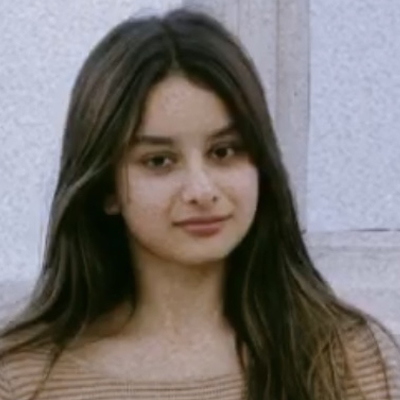Books
Vital to read Nepali to preserve our culture
Sulakshan Bharati, founder of Purano Ghar Theatre, talks about how reading has helped him bring depth to his portrayals of different characters.
Rukusha Giri
Sulakshan Bharati is the founder of Purano Ghar Theatre. He is also a writer, actor, and director of several plays, like ‘Boksiko Ghar,’ ‘Milk Tea,’ ‘Khat’ and ‘Saledo.’
Bharati debuted as a playwright in 2016 with ‘Billgates Pandit’, a story about the aspirations of people who wish to be rich—focusing on characters with limited means but several ambitions and aspirations. During his teenage years, he was a model, winning ‘Mr Handsome Nepal 2006’ and ‘Mr National Nepal 2007.’
Bharati is an enthusiastic reader. In this interview with the Post’s Rukusha Giri, he shares his thoughts on reading and how it has shaped his life.
When did you start reading literature?
My father, Shankar Prasad Bharati, is a novelist and the primary source for my reading inspiration. When I was young, we used to read Nepali books together which invoked a general love for books. But it was only after earning my bachelor’s degree in acting that I started reading seriously. After that, books became a big part of my life.
I discovered that reading books was essential to understanding society as an actor. Consequently, I consciously committed to reading books to help me become a better actor.
What kind of books do you like reading?
I read a lot about acting. As there aren’t many books on the subject written in Nepali, I mostly read texts in English. However, I am a bit weary of reading Western texts, they often don’t fit the local context. Reading Nepali or Hindi texts is much more relevant to us and the society we live in.
I enjoy reading Saru Bhakta’s writing—especially his surreal fiction—and have read almost everything he has written. Apart from that, I gravitate towards social stories as I often draw inspiration from them. A recent read I found impactful was Nayan Raj Pandey’s ‘Ular’.
Do you prefer to finish a book in one go or take your time completing it?
I would like to read books all in one go because you can grasp a lot of things at once. Despite the length of Amar Neupane’s ‘Seto Dharti’, I read it in one go. From my perspective, a book can only be read in one sitting if it captivates the reader. However, there are instances when it takes me months to finish a book, even if it is pretty interesting. To ensure the books I read are worth reading, I look up their reviews before starting.
Who have been your literary influences?
Two of my father’s books—‘Arko Junima’ and ‘Prem Tapasya’—hold a special place in my heart. I can still recall my father reading them to me as a child. Many nights I fell asleep to my father’s voice narrating a chapter or two from the books. I always liked my father’s realistic writing style, but I’m unsure if his books are still relevant today. Nevertheless, his books have significantly influenced my writing style. Some have criticised my plays, saying they resemble my father’s work too closely.
What is one book that you wish your younger self had read?
I wish I had read Shankar Lamichhane’s books earlier. Back then, and perhaps even now, he is not that well-known in Nepal and remains obscure to many. However, his books have a timeless quality that resonates even today. As of now, I’ve devoured almost all of his books. ‘Abstract Chintan: Pyaj’ is definitely my favourite. Though it was difficult for me to understand when I first read it, its realistic yet stylish elements manifested after a few more tries.
What should young people be reading?
It is a common misconception that the younger generation is uninterested in reading. Young people do read, but they prefer Western literature over Nepali. This trend raises concerns as it may lead to the gradual disappearance of the Nepali language over the next 200 years. To prevent the loss of our cultural knowledge, it is crucial that we encourage young people to read Nepali books. The current trend of going abroad has brought to light the issue of cultural disregard among the youth, highlighting the need to address this matter urgently.
While it is beneficial that our youth become familiar with Western culture, they should also understand how important it is to appreciate and look into their own culture and society. That is how a nation can develop.
Sulakshan Bharati’s books recommendations:
Karnali Blues
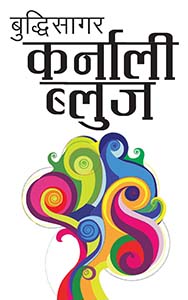
Author: Buddhisagar
Year: 2010
Publisher: FinePrint Publications
I highly recommend reading ‘Karnali Blues’ as it beautifully portrays the love between a father and son, something that I personally appreciate.
Ular
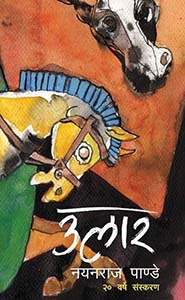
Author: Nayan Raj Pandey
Year: 1998
Publisher: Tanneri Publications
This book delves into the issue of social inequality in Nepali society, highlighting how the privileged and powerful exploit the less fortunate.
Karagar
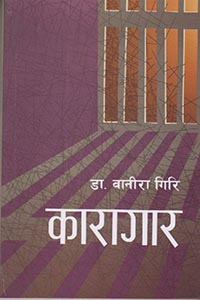
Author: Banira Giri
Year: 2018
Publisher: Manjari Publication
Karagar is a captivating novel about an aged single woman and her married lover. It’s a fascinating story that explores women’s experiences.
Pallo Gharko Jhyal
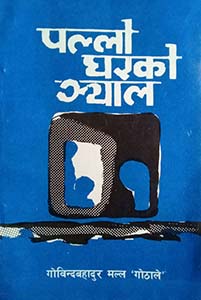
Author: Govinda Bahadur Malla
Year: 1959
Publisher: Sajha Prakashan
The book talks about the differences between male and female psychology. Its exploration of the fears that come with romantic relationships is quite interesting.
Pani Photo
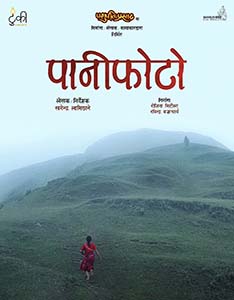
Author: Khagendra Lamichhane
Year: 2011
Publisher: Aarohan Gurukul
As a theatre artist myself, I was inspired by the intriguing plays collected in Lamichhane’s book.
Sunkeshari
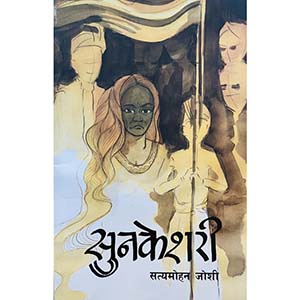
Author: Satya Mohan Joshi
Year: 2019
Publisher: Mandala Theater
Sunkesari is a collection of plays written by Satya Mohan Joshi. People will definitely be drawn to reading Nepali literature after this book.




 8.75°C Kathmandu
8.75°C Kathmandu